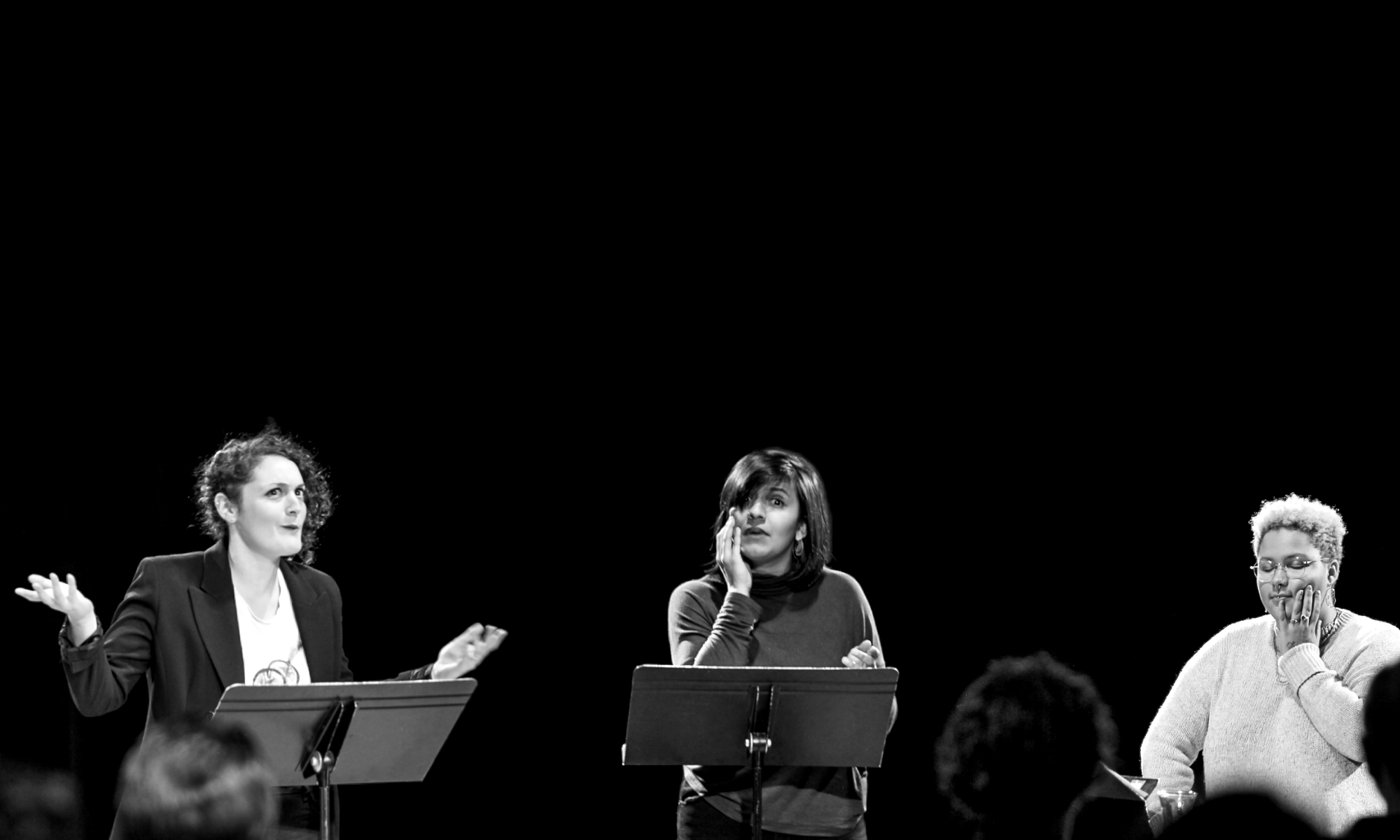By Harris Frost
Dr. Erin Hurley is a professor in McGill University’s department of English whose areas of research include contemporary theatre, performance theory, and Québecois theatre. She is currently collaborating with PWM on a research project on English-language theatre in Quebec. She sat down with us in July to discuss this project and its outcomes.
PWM: Could you talk a little about this project you’re working on right now?
Dr. Hurley: The project as a whole is a five-year research project in which I’m trying to document and analyze the history of English Language Theatre in Quebec [ELTQ]. We’re starting in 1930 and it’s running until about 2015. I’m seeking to understand English-Language theatre as sector and as an entity in relation to the dominant French-language theatre sector in Quebec and also to nationally-dominant English-language theatre sector in Canada. So, where does this quirky minority language set of theatrical and dramatic practices fit in with these two other enveloping concerns?
With PWM, we’re reading all the plays that we can find that were written by English-language Quebecers or people in Quebec writing plays in English. Obviously PWM has been a major repository for those scripts. Right now, we’re creating the corpus, if you will, by gathering all these scripts. And the next step will be to read those scripts, make summaries of them, and make selections for two festivals of staged public readings, with professional actors, that we’ll be doing at McGill. Playwright and translator, Alexis Diamond, who is the literary manager of the festival is working with dramaturg and scholar, Alison Bowie, and myself to curate these plays. We’ve yet to determine all of the parameters of these festivals, but the idea is that each evening will feature one or two works from a given decade.
PWM: Why did you choose to work on this project with PWM?
Dr. Hurley: Well, PWM started out in 1963 as a space for local English-language playwrights to develop and showcase their work. So, we’re capitalizing on the fact that many early scripts, many of which are unpublished and some of which are unproduced, still exist either in PWM’s Carol Libman library or in their off-site archives at University of Guelph.
And the other way that PWM fits into this is in terms of selecting these plays for the festival. Emma Tibaldo, PWM’s Artistic Director, is directing us towards things that we might find interesting in the Carol Libman library or towards things that are important in the history of Quebec theatre in English. Emma will also be helping us find professional actors and directors for these public readings.
PWM: How are you going about choosing the scripts that you select for the readings? What criteria are you using?
Dr. Hurley: To be determined, haha! The first thing would be interest. Is it formally innovative? Is it about something that we don’t hear a lot about? Also, plays that are somehow representative of their moment. Since we’re organizing plays by decade at the moment, we might look for a play that makes us say “Ah! This play is very 1935.”
Another thing we’re looking for is lost gems, if you will, plays that haven’t seen the light of day, either in the form of production or publication. And we’re looking for a diversity of perspectives, not only across time, but also in terms of who is writing these plays and what the playwright is doing formally. We want a good mix, aesthetically and in terms of authors and periods.
PWM: In a recent essay of yours on ELTQ, you reference the Quebec Drama Federation’s 1991 assessment that there is “nothing distinct” about ELTQ. Do you see this project as a way of refuting that assessment?
Dr. Hurley: Well, I would like to think that there are a set of defining characteristics. I don’t know that that’s true yet. I do think that the idea of the ELTQ scene as being ill-defined arises out of that majority/minority dynamic that’s inherent in the field. So with this project, even if we can’t define ELTQ with three specific characteristics or whatever, we’ll at least know a bit more about it.
If we have a sense of the history of practice, of the people who were important in that practice, of what kinds of spaces it took place in, if we have a sense of what is then we can increase its legibility. Visibility too, we do have a somewhat activist hope around this project to help define a sector that is ill-defined and in so doing, make it a little more prominent in the public space.
The series of staged readings is expected begin in the 2019-2020 academic year and will conclude during the 2020-2021 academic year. They will be held at Moyse Hall Theatre and will be free and open to the public.













